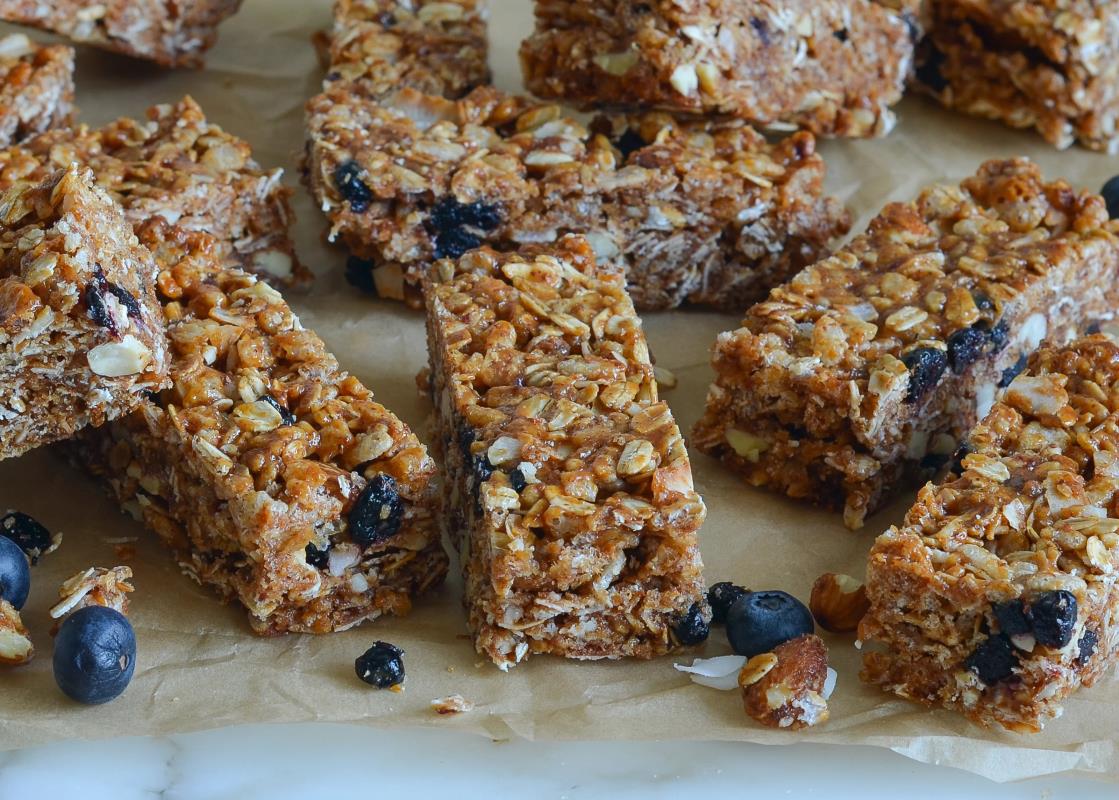The Secret to Rest, Recovery and Sleep for Triathletes
 Karen Parnell
January 01, 2022
Karen Parnell
January 01, 2022
.png)
.png)
.png) The Secret to Rest, Recovery and Sleep for Triathletes
The Secret to Rest, Recovery and Sleep for Triathletes.png)
Recovery is central to your body’s ability to adapt to training sessions. Training breaks you down—recovery lets your body put itself back together.
If your training has hit a plateau, your legs are heavy, you feel sore and fatigued and maybe not sleeping well you may be overreaching (a precursor to overtraining syndrome).
You are probably under recovered.
The most important recovery tool is sleep. Sleep debt increases the production of the stress hormone cortisol while decreasing the production of glycogen. This combination means you won’t wake up feeling ready to tackle the day’s training session.
Increasing your sleep will increase your performance, lower your resting heart rate, decrease daytime sleepiness, and improve your mood and cognitive functioning. Get more sleep, to reduce stress, increase glycogen storage, and improved your bodies’ ability to rebuild and restore muscle.
Sleep equals speed.
If your plan says "rest day" then take heed and rest, repair and recover!

Get your FREE 30-Day Mobility Challenge
Three 'R's of Recovery
We're constantly looking to improve our sporting performance, mostly through our training. However, we often forget how important the recovery process is to making performance gains.
Consuming the right nutrition during this period can help to speed up recovery and will supply your body with the building blocks needed to develop training adaptions.
So, whether the concept of recovery nutrition is new to you, or you need a little refresh of the basics; let's look at what our bodies need.
1. REPAIR WITH PROTEIN
Protein is important for recovery. It helps to repair muscle damage and build muscle post training. It is made up of amino acids which are the building blocks that make up our muscles. The optimal amount of protein you should aim to consume post exercise is 20-30g. Any more than this is not necessary as our bodies just can’t process it in one sitting.
Examples of foods containing 20g protein are 2 large eggs, a tin of tuna, a chicken breast, 2 sausages, a pint of milk.
After a training session or race try to re-fuel with protein within 30 minutes and certainly within 2 hours to ensure your muscles can rebuild and repair using good quality protein. It's always best to eat real food but if you can't and need to take a recovery shake then make sure it's from a company listed on this website below to ensure your product is not contaminated with a banned substance.
https://sport.wetestyoutrust.com/
Here's an example of a homemade vegan recovery smoothie.
If you are an older athlete then you may need more protein to recover and repair and you can find out more in this article about protein and older athletes.

Get your FREE Athlete Recipe Books
2. REFUEL WITH CARBS
Carbohydrates are needed to replenish muscle glycogen that is used during exercise. Our bodies can only store a certain amount of carbohydrates at one time in our muscles and liver. However, these stores are usually fully depleted at the end of a training session and so it is important to top them back up ready for your next session. Aim to consume around 1.2g of carbohydrates per kilogram of body weight post exercise to optimise recovery.
For a 70kg person this would be 84g of carbohydrates, which could be a bagel (50g of Carbs) with half a large tin of baked beans (30g of Carbs).
Here's an example of a homemade date and oat energy bar.

Get your FREE athlete recipe books here
3. REHYDRATE WITH FLUID
Fluid loss during training can vary drastically between individuals depending on sweat rates, but whatever is lost needs to be replaced. Next time you are out training try weighing yourself before and after, making sure you add on the amount you drank during training. Likelihood is you will have lost some weight but sadly this isn’t miracle weight loss but just water loss. Try to then consume 150% of these losses within the first hour of recover; remember 1 kg lost is equivalent to 1 litre.
To find out how much fluid and salts you need during training sessions and on race day you will need to do a sweat test. Here are the details of how to do a sweat test.
Here's a recipe for a homemade energy drink.

Get your FREE Athlete Recipe Books
SLEEP
Another crucial part is sleep. Research suggests that sleep deprivation can cause athletes to become exhausted more quickly, which can reduce performance, even during training. Poor sleep may mean that your body does not have enough time to repair after the stress of training, which can lead to injury or sickness. Pro athletes typically need more than most—it's recommended that they get 8-10 hours every night. But for the average adult, aim for seven to nine hours of sleep a night to avoid the effects of chronic sleep deprivation.
Getting enough sleep is crucial for athletic performance," says David Geier, MD, an orthopedic surgeon and sports medicine specialist in Charleston, SC. Studies show that good sleep can improve speed, accuracy, and reaction time in athletes.
"Sleep is when your body repairs itself. If we don't get enough sleep, we don't perform well." -- Felicia Stoler, RD
Tips on how to get a good nights sleep:
Stick to a sleep schedule, set aside at least 8 hours to sleep and try to go to bed at the same time every day.
Pay attention to what you eat and drink - avoid caffeine or alcohol late in the day
Create a restful environment - dark, quite, comfortable, good temperature with no phones or blue light
- Don't go to bed right after watching TV or being on your phone or other screen, try to wait an hour
- Try not to got to be with an unresolved worry
- Eating right - There are two types of nutrients that can increase your ability to get good sleep are tryptophan (turkey, eggs, cheese, pineapples, salmon, nuts and seeds, turkey, seaweed, turnip, sunflower seeds) and vitamin C (oranges, red peppers, kale, Brussel sprouts, broccoli, strawberries, grapefruit, guava, kiwi, green peppers). So, continue to eat your fruits and vegetables!
- As an athlete try to get your training sessions done earlier in the day and not right before you go to bed. Exercising in the morning daylight helps you to sleep. It helps to kick-start your brain in the same way as when you expose yourself to bright light early in the morning, and it makes the body release melatonin earlier in the evening. Melatonin helps with with sleep cycle.
- When you travel, give yourself time to get used to your new setting. If you're traveling for an athletic competition, it's a good idea to get there a few days early. That way, your body can adjust and you have time to get on a normal sleep schedule.

Get some FREE resources including training plans here.
Conclusion: The Three R's of Recovery
Embracing the Three R's of Recovery—Repair, Refuel, and Rehydrate—is essential for any athlete aiming to optimize performance and well-being.
By prioritizing protein intake to repair muscles, replenishing energy stores with carbohydrates, and maintaining proper hydration, you set the foundation for effective recovery.
Remember, adequate rest and quality sleep are also vital components of this process, allowing your body to fully rejuvenate. By integrating these practices into your routine, you'll enhance your training outcomes and overall health.
Karen Parnell is a Level 3 British Triathlon and IRONMAN Certified Coach, 8020 Endurance Certified Coach, WOWSA Level 3 open water swimming coach and NASM Personal Trainer and Sports Technology Writer.
Karen is currently studying for an MSc in Sports Performance Coaching at the University of Stirling.
Need a training plan? I have plans on TrainingPeaks and FinalSurge:
I also coach a very small number of athletes one to one for all triathlon and multi-sport distances, open water swimming events and running races, email me for details and availability. Karen.parnell@chilitri.com
Get your FREE Guide to Running Speed and Technique
Get your FREE Swim Workouts for Triathletes E-book
Get your FREE Open Water Swimming Sessions E-Book
.jpg)
The Secret to Athlete Sleep Infographic
FAQ: Rest, recovery, and sleep for triathletes
Why is rest and recovery important for triathletes?
Rest and recovery are essential for triathletes to allow their bodies to repair, adapt, and perform at their best. Intense training and racing place significant stress on the body, and adequate rest and recovery promote physical and mental rejuvenation, reduce the risk of injury and overtraining, and optimize performance gains.
What is the difference between rest and recovery?
Rest refers to the periods of inactivity or reduced activity, allowing the body to relax and recharge. Recovery, on the other hand, involves active strategies aimed at aiding the body's repair and adaptation processes, such as nutrition, hydration, stretching, foam rolling, and other recovery modalities.
How can I incorporate rest into my training schedule?
Rest should be incorporated into your training schedule through planned rest days, easy recovery workouts, and scheduled recovery weeks. Rest days provide complete physical and mental rest from training, while recovery workouts are low-intensity sessions that aid in active recovery and promote blood flow without causing additional stress.
What are the signs of overtraining, and how can rest help prevent it?
Overtraining can lead to decreased performance and increased risk of injuries. Signs of overtraining include persistent fatigue, decreased motivation, impaired sleep, elevated heart rate at rest, frequent illnesses, and mood disturbances. Adequate rest and recovery help prevent overtraining by allowing the body to repair, adapt, and avoid excessive physical and mental stress.
How does sleep affect triathlon performance?
Quality sleep plays a crucial role in triathlon performance for several reasons:
- Recovery: During sleep, the body releases growth hormone, repairs damaged tissues, and restores energy stores. This promotes recovery and adaptation from training.
- Cognitive function: Sleep is essential for cognitive function, including memory consolidation, decision-making, and reaction time, which are crucial for triathlon performance.
- Hormonal balance: Sleep deprivation disrupts hormonal balance, leading to increased levels of stress hormones and decreased levels of anabolic hormones, negatively impacting recovery and performance.
- Immune function: Sufficient sleep supports a healthy immune system, reducing the risk of illness and allowing consistent training.
- Mental well-being: Quality sleep enhances mood, reduces stress, and improves mental resilience, positively impacting overall well-being and performance.
How can I improve my sleep quality as a triathlete?
To improve sleep quality:
- Establish a consistent sleep schedule, going to bed and waking up at the same time each day.
- Create a sleep-friendly environment: cool, dark, and quiet.
- Limit exposure to electronic devices before bed, as the blue light can disrupt sleep.
- Practice relaxation techniques, such as deep breathing, meditation, or gentle stretching, before bed.
- Avoid consuming caffeine or stimulating substances close to bedtime.
- Ensure your bedding, mattress, and pillow are comfortable and supportive.
- Seek professional help if you experience chronic sleep issues that significantly impact your quality of life.
Are there specific recovery strategies that triathletes can use?
Yes, some effective recovery strategies for triathletes include:
- Proper nutrition: Consume a well-balanced diet with adequate protein, carbohydrates, and healthy fats to support recovery and replenish glycogen stores.
- Hydration: Proper hydration aids in recovery by facilitating nutrient delivery and waste removal.
- Active recovery: Incorporate low-intensity activities such as light swimming, cycling, or jogging to promote blood flow and reduce muscle soreness.
- Stretching and foam rolling: These activities can help improve flexibility, reduce muscle tension, and enhance recovery.
- Massage or self-myofascial release: Utilize techniques such as massage, foam rolling, or percussion massage devices to target specific muscle groups and promote relaxation.
- Contrast water therapy: Alternating between cold and warm water immersion can aid in reducing inflammation and promoting circulation.
- Mind-body practices: Practices such as yoga, meditation, and deep breathing can help reduce stress, improve recovery, and enhance overall well-being.
Remember, individual recovery needs may vary, and it's important to listen to your body, adjust training and recovery strategies accordingly, and seek guidance from a qualified coach or healthcare professional.
References
https://www.medicalnewstoday.com/articles/rest-day
Recovery after exercise: what is the current state of play?
Sleep and Athletic Performance
